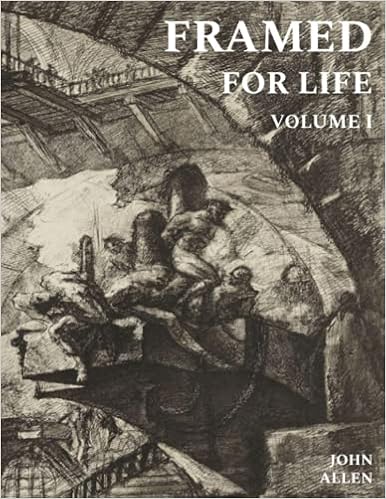There's a little story that goes along with the first book I read this season. My mother, wanting to contribute to literary well-being, ordered The Art of Intimacy: The Space Between, by Stacey D'Erasmo, from the section of my Amazon wish list that includes books on writing. Weeks later, I still hadn't received it. I joked with Mum that whoever inspected the package on its arrival probably saw that word, "intimacy," and assumed they were holding a sex manual. We had a good laugh.
Then Mum called the prison and learned from someone in the institution's mail
room that The Art of Intimacy really had been flagged as potential
violator of censorship guidelines. The book was "under review,"
proving yet again that assuming the absurd is often a very sane way of coping
with reality.
D'Erasmo's little book was eventually cleared, and I read it with gusto. Her
argument is that simple, standalone phrases, such as I love him, aren't
automatically meaningful. Nor is merely adding names sufficient. "In order
to feel the weight," D'Erasmo writes, "we sometimes have to use a
mirror, a distorted image that will make the 'true' image appear. She claims
that we grow closer through distance, through a gap of time or space or context
across which we are somehow better able to apprehend a connection than if that
which we seek were directly at hand."
Those words resonated with me. My world (or my concept of the world, which, it
can be argued, amounts to the same thing) is largely defined by its distance –
from those I love, from activities that most enjoy, from involvement with
society at large. Yet I feel an intimacy with the world. I've often been asked
how. I never had the words to explain. In her writing here, D'Erasmo exposes
the necessity of separation in feeling close to something or someone. The space
makes it possible.
An altogether different perspective on space (and time, and basically
everything else) came from Buddhist philosopher David R. Loy's Nonduality: In
Buddhism and Beyond. The author points out the similarities and
differences between several Eastern ontological systems, including Tibetan
Buddhism, Hinduism, Sankhya-Yoga, Advaita Vedanta, Taoism, and Mahayana
Buddhism (of which Zen is a part), before briefly discussing aspects of
mystical Christianity – all in service of his argument that they share
comparable concepts of nonduality. Along the way he cites a veritable who's-who
of philosophy: Plato, Plotinus, Nietzsche, Heiddeger, Hegel, Kant, Derrida,
Spinoza, Eckhart, Descartes, Wittgenstein, Suzuki, and others.
The premise of nonduality, essential in Buddhism, is basically that the subject
is the object, and vice-versa. All is one. There is no inside and no outside.
(Leonard Cohen wrote a nice poem about this, which was also about a lady
friend's vagina.) In every pair of opposites, each contains the other: in
emptiness, fullness; in darkness, light; in birth, death. It's that simple. And
that complex.
Nonduality began life as Loy's doctoral dissertation. It's not-so-catchy
original title was Nonduality: A Study in Comparative Philosophy.
Unsurprisingly, it reads a lot like the scholarly paper from which it evolved.
It took me a while to read. Like oases in the desert, flickers of the poetic
kept popping up amid the dry bits, particularly when he quoted Zen Master
Dogen. But the words from the book that most deeply struck me were Loy's:
"We look for compulsion in the world and therefore find it, because
freedom explains nothing and gains us nothing."
Satisfying in their own way were the linked stories in Sherwood Anderson's
classic collection Winesburg, Ohio. By accretion they take on
greater significance, greater weight, as the reader slowly approaches an
intimacy with the town and its inhabitants. In that way, Winesburg, Ohio
is a lot like the Spoon River poems of Edgar Lee Masters. Both books are
of a type; the fictional characters who populate them get under your skin. You
share something with them that can't be communicated. That, or they speak to
you in a visceral way, which says, I am not real, but I am most assuredly
human.
It was thanks to the kindness of Kristie H., a fellow book lover whom I don't
even know, that I was able to finally read Winesburg, Ohio. I'm grateful
for the other book she ordered for me, too, Dance, Dance, Dance,
by Haruki Murakami.
It's the seventh Murakami title that I've now read, a sequel, of sorts, to A
Wild Sheep Chase. Here too appears the nameless, mostly aimless
protagonist. Here too appears the (correction: here too appears a)
Dolphin Hotel. Here too appears the Sheep Man. It was a far more mystifying,
more entertaining read, for me, than The Wind-Up Bird Chronicle was. I
apologize to no one for saying so.
Dean Young's voice in Elegy on Toy Piano is similarly
unapologetic. This collection of his often-surreal poems dates from the dawn of
the millennium but bears a few elements that seem to anchor it to an even
earlier period. Among these are references to VCRs, AIDS medication, and
Fritos, a corn chip whose popularity, I'm sure, peaked in 1994.
Some poetry has a shelf life. At their best, though, Young's poems feel
timeless and, if not universal, then at least specific to a point that I'm able
to comprehend them. In this collection, I especially love "Alarm
Clock," which takes what the reader thinks is a familiar subject and turns
it on its side a few times before righting it again, a divertissement before
setting the table.
"Alarm Clock"
I felt like a raven going on revelation alone.
Deep forest I was in deep forest chased.
In my mouth-hole an alarm clock.
I couldn't stand the ticking.
The earliest I ever set one was 3 for an airplane,
4 for a pill, 5 to write fast without thinking
but generally I do without.
Orpheus, in disgust, threw his alarm clock
into the river where it went on ringing.
Time is honey so the clock buzzes.
Naked beside me! Naked beside me!
Da Vinci's sketch of an alarm clock –
still not fully understood.
Voice command.
Croak coax.
The wind blows the curtains
making it easier for ghosts to appear.
Clank of the lightning factory, clank
of the leopard's leash.
There is no pleasure like leaving
before dawn in last night's clothes.
Light snow or thick dew in the grass –
no one's passed this way before.
The note you left needed only a few words,
no explanation where lies could creep in.
Your eyes, blinked clear, won't squint or glance off,
it's the stars that turn their faces away.
He or she is or is not the one you love
and you cannot stay. The dark
turns to mist and the mist cannot stay
but for once there's no need for alarm.
You're getting a good head start.
Maybe the world isn't made of dust.
Maybe you won't make another mistake.
You're as young as you'll ever be.
Valeria Luiselli's
Lost Children Archive came (thanks to Kristie H. for this great
read as well) heaping with accolades and awards. It was among the New York
Times Book Review's Ten Best Books of 2019 and a bunch of other best-ofs,
and I get why. Luiselli writes here in a formally inventive style, framing her
book with an atypical family road trip set against the silent epidemic of
disappearances by Mexican children at the US border. In this way she makes the
impersonal very personal. I enjoy reading books by BIPOC writers with strong
voices, like Luiselli's, because they permit me, a white, cisgender, middle-aged
male, to visit another body for a while and come closer, by however small a
degree, to understanding other humans' lives.



